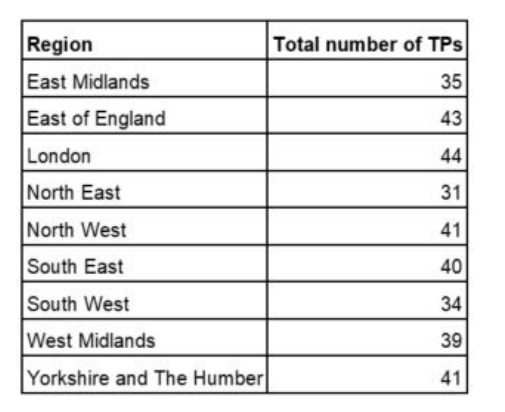The beleaguered National Tutoring Programme has yet to share basic data showing how many poorer pupils it has helped six weeks after MPs demanded it.
Robert Halfon, the education select committee chairman, said there was an “urgent” need for a public dashboard to allow scrutiny of the tutor scheme, run by the for-profit firm Randstad.
Figures released last month estimated that 302,000 tutoring courses began in the first term – just 15 per cent of the promised two million courses for this academic year.
The Observer newspaper reported that the government was “poised” to terminate Randstad’s £32 million contract.
In the House of Lords on Thursday Baroness Barran, the academies minister, gave the strongest warning yet that this may be on the table.
Responding to concerns about the programme, she said: “We’ve already made some changes, improvements are coming through, but we will not shy away from our responsibility to those children.”
Barran said that the government was working with Randstad on a “weekly basis”, adding: “We are not going to accept second best.

“This contract, as is normal with many government contracts, is on a one year, plus one year, plus one year basis, with break clauses for both sides. Our priority is delivering for children.”
The Department for Education declined to comment.
Karen Guthrie, Randstad’s programme director, pledged last month to share figures with the education select committee on how many children with special educational needs had been reached.
She also said the DfE would share “quality assured” figures “shortly” on how the NTP was meeting its 65 per cent pupil premium target.
Neither set of figures has been released, despite now being halfway through the school year.
Halfon said the committee had also called for further evidence from Randstad on its reach.
“Without the data, there can be no strategy, and without this, the chances of improving the catch-up programme are few and far between,” he said.
“The DfE needs an urgent dashboard, school-by-school, to analyse where the catch-up programme is working and where intervention is needed.”
Randstad did supply requested data on the regional breakdown of the 56 tuition partners.

While 44 TPs can tutor in London, only 31 can in the north east.
They added that DfE will provide “relevant breakdowns” of data “later in the academic year when delivery is more complete and is appropriate to do so”.
The DfE told Schools Week that it had committed to publish regular data, but that it was “reviewing the publication of more in-depth reporting to ensure quality-assured data is made public that accurately reflects the programme”. No timescale was provided.
The schools minister Robin Walker said earlier this month that the department was “considering the practicalities” of publishing regional data.
Stephen Morgan, Labour’s shadow schools minister, accused Randstad and ministers of “dodging scrutiny”. He said the refusal to release “basic information” was an “admission of its failure”, adding: “Ministers must publish this information to enable improvements to be made.”
Meanwhile, the Equalities and Human Rights Commission said that it was concerned about the “limited availability” of data on learning loss and catch-up among protected characteristic groups.
In evidence to the education select committee’s inquiry on the government’s catch-up scheme, they said: “The current gaps in evidence mean that the impact of the pandemic on learning loss across groups with different protected characteristics remains unclear.”
Nick Brook, deputy general secretary for the school leaders’ union NAHT, said: “We already understand enough to know that there are some fundamental issues with the NTP that need to be tackled if government are to realise their ambition to deliver a tutoring revolution in schools.
“Greater transparency may illuminate the issues more clearly but it is action, not data, that is urgently needed to address current challenges.”
















Your thoughts